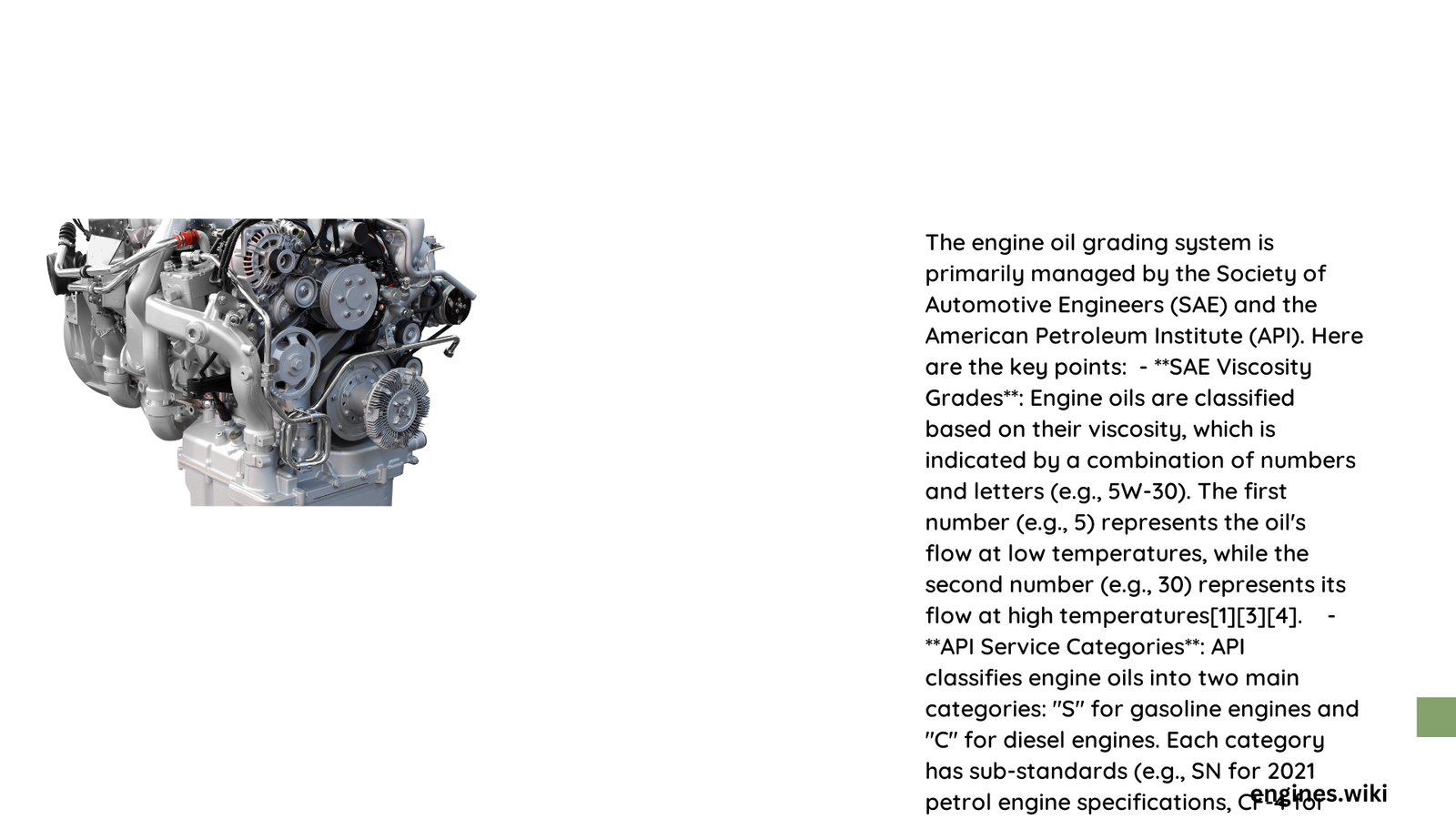The engine oil grading system is a sophisticated method of categorizing motor oils based on viscosity performance, temperature resistance, and engine protection capabilities. This standardized classification helps vehicle owners and mechanics select the most appropriate lubricant for specific engine types, operating conditions, and performance requirements, ensuring optimal engine health and longevity.
What is the Purpose of Engine Oil Grading System?
Engine oil grading serves multiple critical functions in automotive maintenance and performance optimization. By providing standardized measurements and classifications, it enables precise selection of lubricants that match specific engine requirements.
How Do SAE Viscosity Grades Work?
The Society of Automotive Engineers (SAE) developed a comprehensive viscosity grading system that evaluates oil performance across different temperatures. This system uses two primary measurements:
- Low-Temperature Performance (Winter Grade)
- Represented by the number before “W”
- Lower numbers indicate better cold-temperature flow
-
Examples: 0W, 5W, 10W
-
High-Temperature Performance
- Represented by the number after “W”
- Higher numbers indicate better high-temperature viscosity stability
- Examples: 30, 40, 50
Viscosity Grade Comparison Table
| Grade | Low-Temp Performance | High-Temp Performance |
|---|---|---|
| 0W | Excellent (-35°C) | Moderate |
| 5W | Very Good (-30°C) | Good |
| 10W | Good (-25°C) | Better |
| 15W | Acceptable (-20°C) | High |
What Determines Oil Performance Ratings?
Several key factors influence oil grading:
- Temperature Range: Ability to maintain consistent viscosity
- Shear Stability: Resistance to viscosity breakdown
- Lubrication Quality: Protection against engine wear
- Additive Composition: Enhanced performance characteristics
Why Are API Service Classifications Important?
The American Petroleum Institute (API) service classification complements SAE grades by certifying oil performance levels:
- SN Category: Gasoline engine standard (introduced 2010)
- SP Category: Advanced gasoline engine standard (introduced 2020)
- CK-4/FA-4: Diesel engine specifications
How to Choose the Right Engine Oil?
Selecting appropriate engine oil involves considering:
- Vehicle manufacturer recommendations
- Climate and driving conditions
- Engine age and type
- Recommended viscosity range
What Are Common Misconceptions?
- Myth: Thicker oil always provides better protection
-
Reality: Proper viscosity depends on specific engine design
-
Myth: All oils perform identically
- Reality: Significant variations exist between grades and formulations
Key Takeaways

- Engine oil grading system provides standardized performance metrics
- SAE viscosity grades measure temperature-based performance
- API classifications ensure quality and compatibility
- Proper oil selection is crucial for engine longevity
